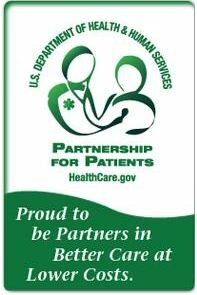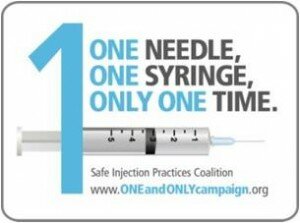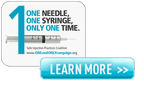HAI Focus

We were honored to have a comment published to HAI Focus last week. It is a website designed to help you find the information or news you need about healthcare-associated infections (HAIs) and infection control. The site is updated on a daily basis to reflect current news and events related to HAIs. Our comment was in response to a recent patient notification that is taking place on Long Island. Click on the link http://www.haifocus.com/lets-talk-lives-depend-on-you/ or read the comment below.
I remain troubled by the news that 4,277 patients on Long Island, because of improper use of an insulin pen, have been placed in harm’s way (“Nassau hospital’s call to test injected patients seen as opportunity,” March 15). These men and women are in my thoughts and prayers.
I joined the CDC and its partners in 2008 to launch the One and Only Campaign. Because of troubling patient notifications and devastating outbreaks that have occurred in the last six years, our work on the campaign has expanded. We developed extraordinary resources on proper use of the insulin pen, for instance. I encourage healthcare workers throughout New York and the area to take time to reeducate themselves on all injection safety fundamentals.
In addition to my encouragement to healthcare workers to always give a safe injection, I encourage them to be unafraid in addressing each other directly, anytime injection safety standards are violated—or seem to be.
I was one of 99 people in Fremont, Nebraska, who was infected with hepatitis C while receiving treatment for cancer at an outpatient clinic in 2002. Syringes were reused, and the saline flush was used improperly. Not only does an outbreak of hepatitis C affect patients, it affects an entire community. Notifications like the current one on Long Island chip away at a community’s confidence in its medical care.
Did anyone speak up, when my fellow patients and I, people who were fighting one fatal disease only to have to take on another, were being violated over a long time through unsafe injection practices? Sadly, the answer is no.
In the recent reports, it appears an unnamed healthcare worker did make a stand. He or she heard a colleague say it’s okay to reuse an insulin pen on more than one patient. As we know, blood can become trapped in the reservoir and, if it is reused, cause an infection. As it states in the One and Only Campaign materials, “Insulin pens that contain more than one dose of insulin are only meant for one person.”
To the healthcare worker who said to his or her colleague, No, that is not how it is done, we issue our thanks. I expect this person will not perceive him or herself as strong or brave. I expect he or she would say, if I had a chance to provide a commendation, I was just doing my job.
However, speaking up to a colleague, and especially to a person of higher rank, clearly does not occur as often as it should in healthcare. I am one of many people throughout the United States who have been deeply affected by ongoing, unchecked unsafe injection practices.
On behalf of my fellow patients, and with the patients from Long Island in our minds and hearts, I urge healthcare workers to be unafraid to say, “Stop.” To say, “No.” Lives depend on you.









